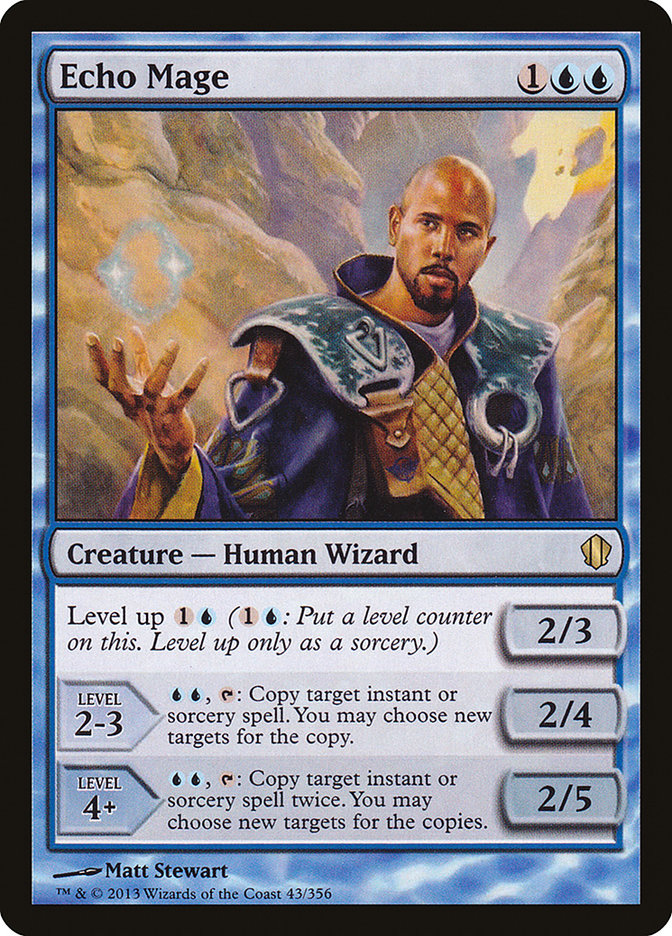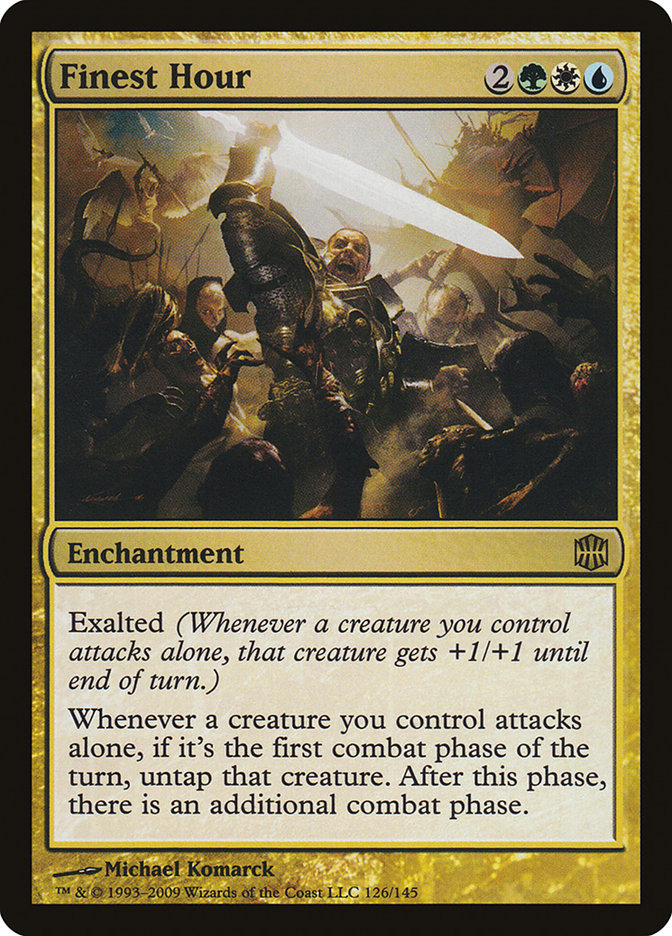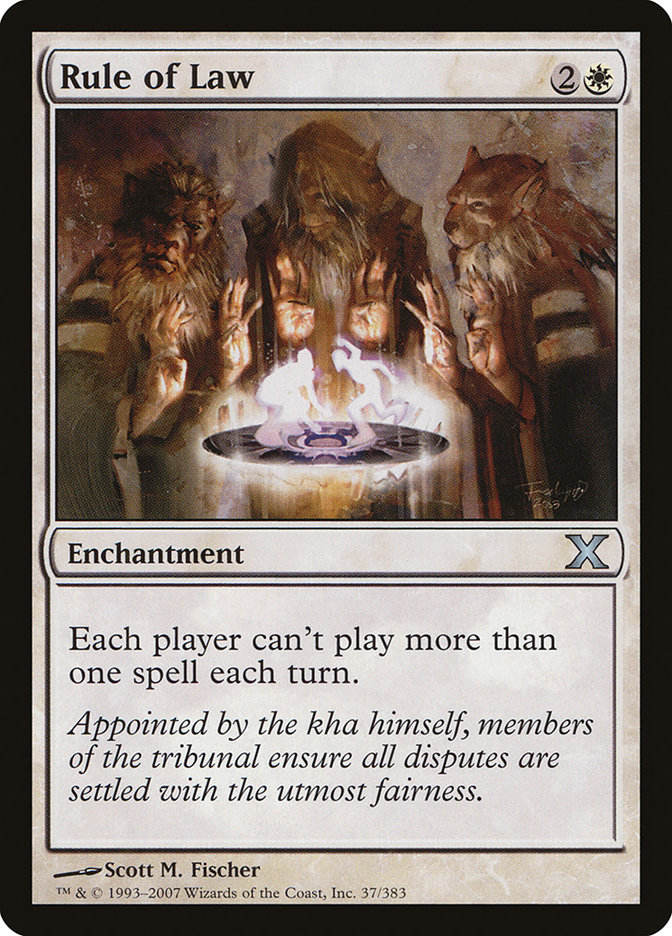Last week, we discussed how deck selection’s importance was being devalued in a variety of ways throughout our community. This lack of attentiveness through the years has caused a rippling effect from Game Night all the way to Worlds. The ability to properly select decks has now taken a backseat to every other obtainable skill in Magic, even though it’s the most discussed aspect. We know why there’s a lack of accountability for poor deck selection, but now we unravel the mysteries behind how we come to those poor choices in the first place. Today we learn how each and every one of us is guilty of lowering our chances in any given tournament each time we register for an event.
The impact of deck selection in competitive Magic can be a topic with conflicting opinions. Some value it highly, like me, while others may consider it an embellished skill no more important than any other aspect of the game. Given its level of complexity and subjective nature, a common ground is rarely found. My understanding, and the foundation for my argument, is that deck selection’s importance is dependent on the other traits associated with skill. Once a player hits a certain threshold of competency, the ceiling of their game can only be significantly increased with proper deck selection.
It’s not difficult to argue against deck selection’s importance and come out victorious in the public eye. Archetypal players are known to flourish in the game, and even the SCG Player of the Year is widely considered one of the best aggressive players in the world. Success isn’t found on just one path, so arguing the importance of one thing over another tends to fall on deaf ears.
Success, however, doesn’t validate decision making processes. Success isn’t along the path of preparation, but a result of it. Deck selection should be considered a part of the preparation process, and scrutinized over as intensely as any other aspect of said process. That’s not how it plays out, though. Deck selection is no longer just another skill to be harnessed, but rather has transcended to being part of our identity. Emotional bias, investment of self-worth, and irrational fears also play a role in this phenomenon.
An opinion, idea, process, ego, or influence can all independently or collectively cause players to make poor deck choices. It doesn’t take much at all for someone to think they’re making the correct decisions, but due to one small, seemingly incidental flaw, they’ve now come to the wrong conclusions.
Flawed Practice Procedures
Proper deck selection starts with preparation. Players practice in a variety of ways. They play on Magic Online, at their local game store, with testing partners at their homes, or simply just theorize for their conclusions. Even though it should, any preparation process rarely begins objectively. Somewhere inside lies a bias that a foundation is built upon.
Last week, we discussed how many players use a linear scientific method to conduct preparations. One of the more fatal flaws of this procedure is the overvaluation of the knowledge gained from previously used decks. Many believe that the act of switching decks comes with the opportunity cost of mastery. Players tend to believe they will have better results the longer they play a certain deck. There doesn’t even need to be an emotional bias of enjoyment for them to want to continue down this path. They believe it to supply the highest potential gains “objectively.”
No one wants to become a master of none, but rarely feared is the possibility of being incorrect. Even if Deck A is perceived to be the correct choice, proper preparation shouldn’t exclusively be centered on that deck. Ignorance is bliss, but not in the realm of competition. You’ve been wrong in your life before, so assuming there’s no possibility of it now is foolish.
Ignoring the exploration of other strategies creates issues in a variety of ways. It causes one to misevaluate matchups due to external variables such as a mismatch in skill levels, prevents deeper understanding into how opposing decks function, and most importantly keeps one from discovering better alternatives. It’s easy to think you are correct all the time when you construct the world around you to prove that time and time again.
Confirmation Bias
There are four major biases in deck selection: Archetypal, Fear, Intellectual, and Authoritative.
Archetypal players tend to play the same general strategy from format to format under the impression that mastery gives them the best chances for success. This encompasses playing the same deck throughout an entire format and playing the same style of decks all the time regardless of varying formats. The satisfaction of clarity in decision-making overshadows any negative aspect of the repetitiveness.
They often get very emotionally attached to their decks due to the fact that they’ve allowed this decision making process to become a part of their identity. Making this conscious decision often increases a player’s short-term success, but at the sacrifice of becoming a well-rounded player down the road.
Now, there is no good documentation that proves having a well of knowledge on many different archetypes is actually better than becoming a specialist in any given field. There are countless “masters” out there to use as examples proving its worth, but at the same time there are players who shift strategies constantly with just as much success. It’s practically impossible to definitively prove one side over the other through the lens of accomplishments. Attempts are made to debate the issue in this way, but they always seem to devolve into a long-distance urination competition.
That’s because the proper way to discuss this topic has nothing to do with previous accomplishments! This was brought up in great detail last week. It’s difficult to dredge up the past and examine it to the extent we as Magic players like to dissect issues. Without the ability to properly analyze an issue, any argument on the matter will eventually be won by the stronger debater with the loser still set in their ways.
The only way I’ve found to properly examine this issue is by using an economic law. The law of diminishing marginal productivity is an economic principle that states that while increasing one input and keeping other inputs at the same level may initially increase output, further increases in that input will have a limited effect, and eventually no effect or a negative effect on the output.
This law is exactly why I personally make it a point to learn how to play as many decks in a format as time allows. The knowledge acquired is not at the same depth as someone who has spent an equivalent amount of time on one deck, but that doesn’t mean they are in a better spot than I am. The knowledge gained from playing a variety of decks can be used for more purposes than piloting them specifically. Not only that, but the foundation gained from trying so many decks gives me a higher success rate when selecting decks week in and week out.
You can find rewards by simply exchanging decks with your practice partner 30% of the time. A great example of this would be SCG Knoxville last year. Most players believed W/U Flash beat B/G Delirium, but only based those opinions on personal finding. Most did not test that matchup from the B/G Delirium side, or they would have realized good play favors Delirium. Simply just swapping decks in a single practice session could have helped dozens of players, but in the end that wasn’t done. To most, it was more important to get in those last couple reps with W/U Flash than it would be to see the matchup from the B/G Delirium side.
Authoritative bias players tend to play the regarded “best deck” in any given format. The deck gets chosen via tournament results or through the opinions of respected pros and is built, learned, and played until something else is considered the best deck. The issue with this bias is that it’s as nearsighted as archetypal, but it impacts the player in a much different way.
Those searching for the regarded best deck to play often don’t make decisions for themselves. They heed the words of their favorite pros and regurgitate them in their debates, never truly understanding the lessons being taught. They have no emotional investment in deck selection, so they don’t seek to answer many questions about their decision-making process when it pertains to deck selection. Instead of constantly trying to perfect a strategy like archetypal players, they patiently wait for their next fish to feed on.
This bias restricts a player’s ability to effectively “level up.” They will always do well enough to consider themselves good but rarely make it to the next level. They also believe what they are doing is correct, since they aren’t as rigid as archetypal players, but can’t see beyond the fact that maybe neither process is correct.
Along the same vein of authoritative bias is a fear-of-following bias. Early in any format, a deck becomes regarded as the best. Some will choose to play it, while others try to fight against it. At this time, it’s difficult to know which approach will have the most success, but oftentimes the regarded best deck will continue to stay on top when it was discovered through results. When this happens, many players choose to not switch over and play it. They will rationalize against it, either by staying vigilant in their cause to dethrone the king or because of fear.
That fear manifests when a player feels like they are not up to the task of piloting the deck. They missed the boat, and now others who play the deck will know it better than them. Many players go through this. They believe there’s an intellectual inferiority in their ability to play the “best” deck, so rather than give it a shot, they dismiss it as a possibility.
This line of thinking often causes tunnel vision that’s detrimental in the short term. Since the argued best deck is no longer on the table, the logical next step in exploring deck selection is to find that which beats it. After all, if it’s incorrect to play “the” deck, then it must be correct to beat it. Looking at the format as a whole is no longer possible, making the likelihood of a subjective decision much more likely.
Last is the intellectual bias. Oftentimes a deck will exist that is well-positioned against the regarded best deck but is linear in nature. These decks often have perceived straightforward play patterns that are not stimulating to those who have an intellectual bias. Those inflicted with this will not want to play a deck that makes them feel “dumb” when they play it; the decisions should be more difficult so that they can leverage their superior intellect.
Serious issues can arise when two or more biases are in play at the same time. For example, if someone has a fear of following as well as an intellectual bias, they’ve only effectively eliminated options for deck selection. The regarded best deck and the deck that beats the regarded best deck are now off the table. They haven’t actually made any real decisions. They’ve just decided to start the process of finding the best deck by eliminating options through a subjective scope.
Options are the lifeblood of Magic, and subjectively eliminating them just lowers the chances for success. It might not feel that way in the short term, but over time these biases become a part of a player’s identity. People become aggro or control players, prefer the best decks and let everyone know it, or like to attack the format and feel smart. They become known for these biases, and they like it.
Having a bias towards certain strategies is fine, but only when in the context of a specific format. Many ignore this relevancy and make blanket statements about strategies that have done poorly or well in the past. Magic, however, doesn’t function on a timeline like other aspects of life. New cards come in while old cards rotate out. Just because something did poorly in the past doesn’t mean it will relive that fate. Previously learned lessons can be used to sculpt a foundation for exploration, but generalized assumptions tend to only be used to push through biased opinions.
If your goal is to excel at this game, then you must push subjective bias out of your decision-making process. Last week, I showed you that most in our community want to devalue the importance of deck selection. Those who don’t are fighting an uphill battle against their own personal biases as well as the participation awards given out for creativity and innovation.
You have to make a conscious decision to scrutinize over your deck selections, successful or not. Was there something wrong with your process? Did you think people would adapt more quickly? Did you underestimate the players? Why didn’t you try out the deck that did well? All these questions and more need to be asked frequently before you even start on the next tournament’s preparation. Learning how to learn is much more important in the here and now than looking into next week. It’s just not as fun.
I didn’t chose this topic because I had something profound to say that would change the behavior of our community. In all honestly, I don’t even know if that’s what the collective wants. I just personally saw an issue that needed to be addressed. If what I said these past two weeks resonated in you, then I suggest you begin exploring ways you can personally improve upon your deck selection process. It won’t be easy and will involve critical self-examinations, but I promise you it will be worth it in the end.
You’ve been led to water, but will you drink?









